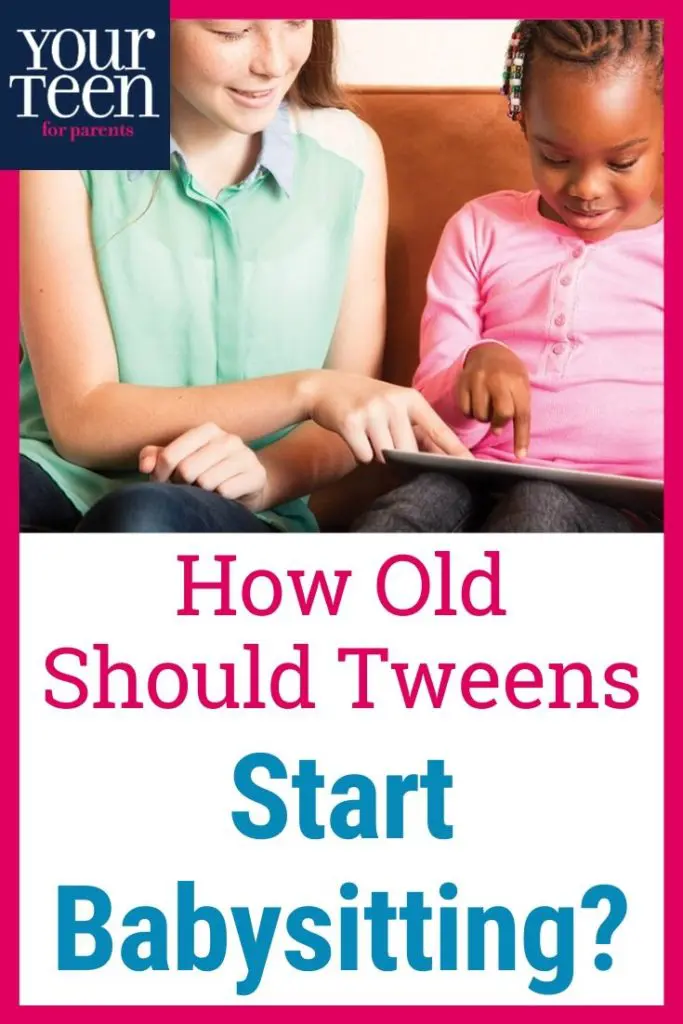The summer before my twin daughters turned 12, my mom-friends with young kids kept asking me the same question: “Do you think the girls are almost ready to babysit?”

The idea sounded both fantastic and terrifying. The idea that my tweens could start earning their own money and gaining responsibility was intriguing. The fact that they would step over a bowl sitting on our living room floor instead of picking it up made me contemplate if they could keep another human being alive for a few hours.
As the casual questions became actual requests, I knew it was time to start figuring out this babysitting gig and prepare my kids. I believed my tweens were responsible—they stayed home alone without a problem and used sharp objects with care, but I was worried about their judgment in an emergency situation.
Worried Your Tween is Too Young To Babysit?
Ease in
Sidra Ellison, an American Red Cross instructor supervisor, suggests the first step is to have a conversation with your tween. “Ask them what they think makes a good babysitter,” she says. “Are their answers resonating with you? Are they communicating an understanding of what it means to take babysitting seriously?” You can also observe your teen in their daily activities, says Ellison. If you were an objective bystander, would you hire your teen?
For my daughters, we started slow. They started off by watching some neighborhood kids outside while a parent was home, and they volunteered as a mother’s helper while my friend did some projects in her garage. They took a babysitting course at a local hospital that went over general safety rules, the basics of CPR, and what to do in an emergency. By the time they landed their first real babysitting job, I felt they were prepared.
However, parents should trust their gut, and if they feel that their child isn’t ready, they are probably right.
Develop babysitting skills
A variety of skills can make a great sitter (maybe your kid’s crafty tendencies or Lego love will be a hit), but there are certain fundamental characteristics that parents almost always desire in a childcare provider. According to Nicole Rotman, community advocate for Sittercity, a connection portal for families and sitters ages 18 and over, parents value:
Official training: Organizations like Red Cross offer multiple courses online and in-person to help prepare sitters. CPR, first aid, and babysitter training are a few of the classes they offer.
Good judgment: Young sitters should be able to showcase their ability to make clear and informed decisions before they take on a job.
Organization and reliability: Punctuality and the ability to juggle multiple schedules are key traits for sitters. Parents need their sitters to be in the right place at the right time, every time.
Communication skills: Sitters should be able to talk to children about their day. They should also feel comfortable communicating effectively with parents when they come home.
Transition management: Transitions can be hard for everyone. A good sitter can ease that transition by recognizing what the child needs when the parents leave and come home.
As a parent who hired many teenage babysitters, I would also add that basic cooking skills and taking the initiative to clean up messes are a huge bonus, as nothing is worse than coming home from a great night to a kitchen disaster and messy playroom.
How Involved Should Parents Be?
Some parents only let their tweens watch other children if they are at home themselves. But parents should restrain themselves from interfering too much. “Let your son or daughter know you are available for advice,” says Ellison. “If they call you and ask for help for a baby who will not stop crying, they may be relieved to know you are there for support.”
But, says Rotman, if you’re feeling like you need to regularly check in on your kid while they’re babysitting, they may not be ready to watch children on their own yet.

Parents also should discuss pricing with their child. Ellison suggests asking friends and family with young children what the going rates are for babysitters in your area. “It is acceptable to charge different rates depending on how many children need care,” she says. “Some people find success by offering a sliding scale to parents. Providing a small range of what local families often pay may make everyone feel more comfortable. Definitely have your child be prepared to answer the question before meeting with a family for the first time.”





